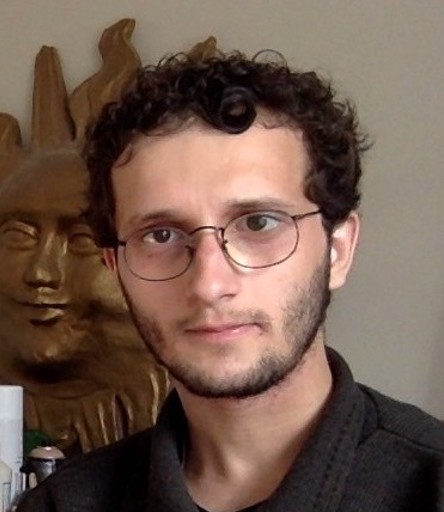




Diego and Elena are leaving Spain. They will settle in the US, potentially in Miami although they may move around the country until they find the right place. He is a recent graduate in modern urbanism; she is a former contemporary dancer. Their papers are in order, and, before leaving, the lawyer reassures them saying all will be fine. Diego is visibly more nervous than his partner; he is Venezuelan, after all. They stand by the border that seals them from their future when the stern-looking officer at gate number 18 puts both their passports in a plastic bag and asks them to follow him. They are about to be given the warmest of greetings: a swift escapade through secondary inspection, in the back-offices of the US border.
The duo of first-time collaborators Alejandro Rojas and Juan Sebastián Vásquez, originally from Venezuela, wrote the script based on testimonies from friends and on their own experiences. They have crafted an unsettling chamber piece which will deeply unsettle viewers to the point of making them turn down any potential future trip to the ‘Land of Liberty’. A remarkable piece of political cinema, the film presents us with a situation that is likely to happen on a daily basis.
Diego and Elena’s passage through secondary inspection is far from smooth. They may have confronted only a few hours of interrogation but these intense moments will undoubtedly leave indelible marks on their relationship. The viewer is put in the uncomfortable position of witnessing unjustifiable acts, having no other option but to stay quiet and observe the unfolding of events. As the interrogation progresses, elements from Diego’s past come to light. It turns out that he has not been as honest as Elena thought. But what gives the border police the authority to dig through their lives and torment their relationship? While Elena is assertive at first, she soon loses all sense of control under the tight authority of not one, but two interrogators.
The questions multiply. The interrogators divide the couple up and conduct separate interviews, playing what one says against the other. They manipulate them both, pretending to hold knowledge that they do not possess. The situations reach an apex of absurdity when the male interrogator asks Elena to perform a dance number for him. As the couple undergo increasingly intense psychological anguish, the viewer is haunted by questions: what is the interrogators’ goal, specifically? To uncover the truth? To destroy their relationship? To break them apart, out of sheer sadistic pleasure? To make them confess even if they are not guilty, so that they may be rejected from entering the country?
The film cleverly discloses the ways in which power operates at the borders of our ‘safeguarded countries’. It asks us to re-consider the laws which give border officers the authority to discard citizens’ every rights. Indeed, once the couple enter the domain of the inspection offices, the two interrogators seem to possess the license to do absolutely anything they wish to the detainees. They can search them, ask any personal question, separate them, manipulate them, dig through their phone, laptops, ask for their passwords, ask them to dance…
The film’s moment of maximum tension is a scene where Diego is left alone in the interrogation room, faced with the temptation to quickly look through the file that has been left on the desk. While the film could have maybe benefitted from a greater attention to its cinematography, the overall aesthetics succeed in giving off the sterile aura of the standardised and inhuman environment of airport security offices. But the crowning achievement of this remarkable film is the editing by Emanuele Tiziani, who imbues it with incessant, nerve-wracking energy.
Upon Entry premiered at the First Feature Competition of the 26th Tallinn Black Nights Film Festival, when this piece was originally written. Its UK premiere takes place at the 31st Raindance Film Festival. Also showing at REC, Tarragona International Film Festival.











